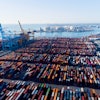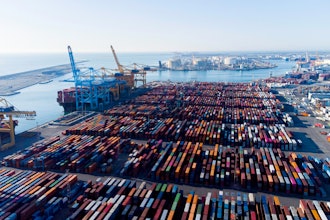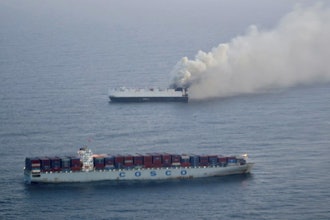BEIJING (AP) -- China's manufacturing contracted for a second straight month in February as a mainstay of the world's No. 2 economy loses momentum amid government efforts to rein in credit and investment growth.
The preliminary version of the HSBC Corp. purchasing managers' index fell to a seven-month low of 48.3 from January's 49.5 on a 100-point scale. Numbers below 50 show activity contracting.
China's economic activity has slowed steadily as the government tries to reduce reliance on investment in industry and infrastructure and encourage more sustainable growth based on domestic consumption.
HSBC economist Hongbin Qu said in a statement that the buildup of pressure for prices to fall "implies that the underlying momentum for manufacturing growth could be weakening."
He said policymakers can and should "fine-tune policy to keep growth at a steady pace in the coming year."
February's PMI reading is the lowest since July's 47.7. It's the second month in a row that activity has contracted, after a larger-than-expected fall to 49.5 in January roiled global markets for days as investors grew concerned about fragility in China's huge manufacturing industry.
The HSBC survey is the latest evidence of the relentless slowdown in China over the past two years. Last year the economy grew 7.7 percent, which is high by the standards of advanced economies such as the U.S., Europe and Japan but barely half the 14.2 percent rate that China grew in 2007.
Economists are wary about drawing conclusions from Chinese factory data at the start of the year because they are typically distorted by the Lunar New Year holiday, which falls at different times in January and February each year. Factories often rush to fill orders ahead of the holiday, boosting output, and then shut down for up to two weeks as workers return home. This year's holiday began on the last day of January while last year it fell in the middle of February, so the effect may be minimal.
"Caution must be taken in in interpreting the monthly figures at this time of year, as shifts in the timing of Chinese New Year make seasonal adjustment less effective," said Julian Evans-Pritchard of Capital Economics in Singapore. "Nonetheless, the below 50 readings of the past two months leave little doubt that conditions in the manufacturing sector are downbeat."
He said the latest data is "not necessarily a concern" as the manufacturing weakness reflects attempts by authorities to reduce the economy's reliance on investment.
The HSBC survey is based on 85-90 percent of responses from 420 factories. The full version is due March 3.
Kelvin Chan in Hong Kong contributed to this report.













![7 001[1]](https://img.manufacturing.net/mindful/im/workspaces/default/uploads/2025/06/7-0011.S7Uqlbb3HV.jpg?auto=format%2Ccompress&crop=focalpoint&fit=crop&fp-x=0.53&fp-y=0.44&h=220&q=70&w=330)








